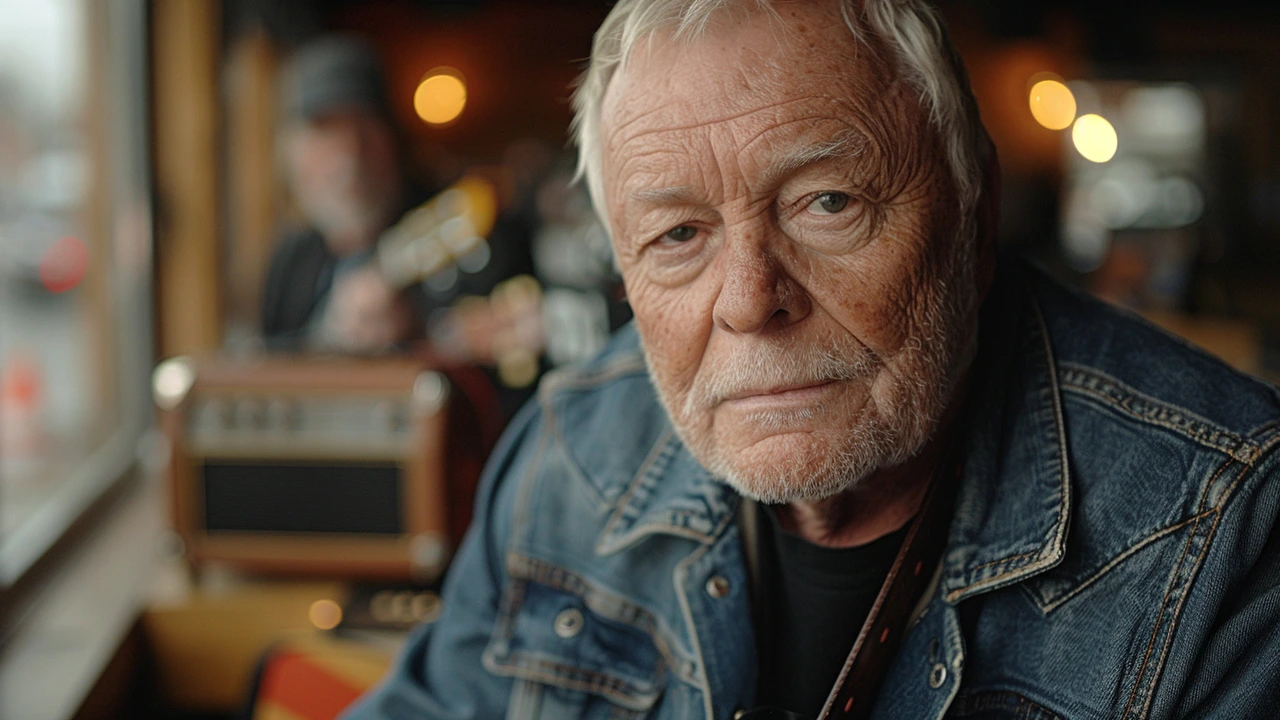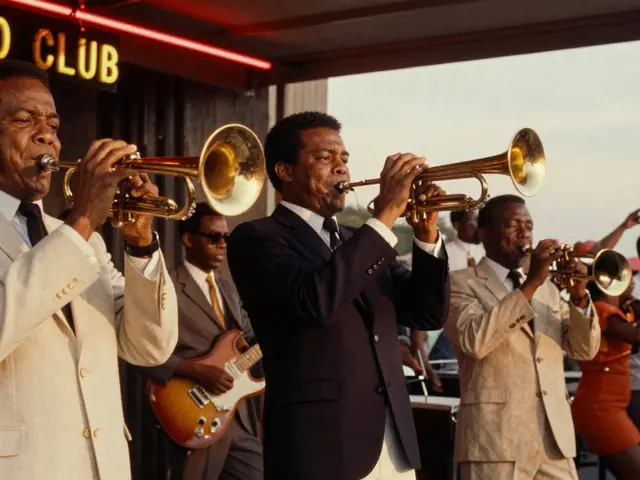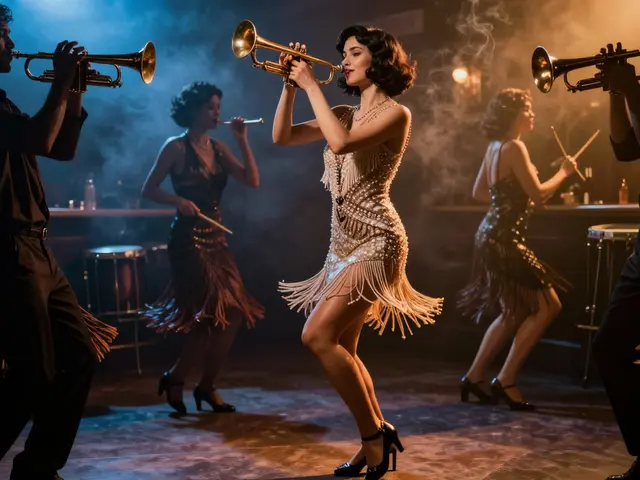Country music isn't just a genre; it's a chronicle of American life painted with melodies and lyrics. Its roots planted deep in the soil of early 20th century America, country music began as a simple narrative tool, echoing the lives and struggles of the rural south. As America grew and changed, so did country music, adapting to include influences from other genres, yet always maintaining its heartfelt narrative style.
It's a musical journey that offers more than just entertainment; it provides insights into the values and changes of American society. Through songs about everything from love and loss to hardship and hope, country music remains a steadfast interpreter of the American spirit.
- Origins and Evolution
- Icons and Influences
- Cultural Impact
- Country Music and Patriotism
- Modern Country and Its Future
Origins and Evolution
The history of country music intertwines deeply with the cultural and social developments of early 20th-century America. Initially emerging from the Appalachian Mountains, where folk tunes and ballads told stories of day-to-day lives, this music genre was a form of expression for many who lived there. These early forms combined elements from various traditions, including English, Scottish, and Irish folk music, blending with the blues, which African-American musicians predominantly developed in the South.
During the 1920s, as radio began to reach the vast interiors of the United States, country music found a new and larger audience. It was the era of the first commercial recordings of what were then called 'hillbilly music.' The genre's first big star, Jimmie Rodgers, known as the 'Father of Country Music,' popularized it with his unique blend of traditional folk and blues, marked distinctly by his yodelling. His music resonated with many, reflecting the emotions and experiences of rural Americans.
In the 1930s and 1940s, as America faced economic hardship and war, country music evolved, portraying themes of adversity and resilience which echoed the nation's mood. The Grand Ole Opry, begun as a radio broadcast in 1925, became a pivotal institution in Nashville, shaping the genre's future. Nashville soon became synonymous with country music. Artists like Hank Williams emerged, whose poignant songs spoke directly to the human experience, making an indelible mark on the genre.
The post-war period saw technological advancements that further shaped the music industry. Electrification led to the introduction of new instruments like electric guitars and pedal steel guitars into country music. This period also marked the birth of 'Rockabilly,' a fusion of rock and hillbilly, a style country music significantly influenced, prominently seen in the works of Elvis Presley, who began his career in the genre.
As country music moved into the late 20th century, it began to incorporate more elements from pop and rock music. Artists like Johnny Cash and Dolly Parton not only transformed the sound of country but also brought it to international audiences. Their success paved the way for future generations, allowing the genre to adapt continually and remain relevant in the changing musical landscape.
Today, country music continues to evolve, yet it holds tightly to its roots. It is still a powerful form of storytelling that reflects personal and collective experiences. With each new artist that comes along, the genre expands, embracing new sounds while respecting traditional influences, which remains a testament to its enduring appeal and constant evolution.
Icons and Influences
The tapestry of country music is adorned with the figures who not only defined but also revolutionized the genre. From the soulful cries of Hank Williams to the empowering anthems of Dolly Parton, each icon brought their unique flavor to the musical table. Williams, often hailed as the 'King of Country Music', introduced a raw emotional depth to country music that was unprecedented at the time. His songs, marked by their poignant simplicity, spoke directly to the hardships and joys of the common man.
Dolly Parton, on the other hand, is not just a singer but a storyteller whose songs often reflect her own experiences growing up in rural Tennessee. Her impact extends beyond music, as she embodies the values of perseverance and generosity, often championing causes related to literacy and women's rights. Parton's influence is profound, illustrating how country music artists can effect change within and outside the industry.
Johnny Cash, with his deep, calming voice, has left an indelible mark on the genre as well. Known for his songs about love and redemption, Cash’s music often carried messages of hope, resilience, and reconciliation. His famous live performances at Folsom and San Quentin prisons are legendary, showcasing his belief in music’s power to transcend barriers and touch lives. His approach to country music was comprehensive, incorporating elements of rock, folk, and blues, thus broadening its appeal.
Indeed, these icons not only shaped the soundscapes of their times but also paved the way for future generations. For example, contemporary artists like Carrie Underwood and Blake Shelton draw inspiration from these legends, blending traditional elements with modern nuances to create music that continues to resonate with diverse audiences.
Cultural Impact
Country music has long served as a mirror reflecting the broader cultural shifts and attitudes across the United States. Its simplicity, combined with emotional depth, offers a unique canvas for artists to express societal concerns, triumphs, and tragedies. The influence of country music extends beyond its melodies, shaping and reinforcing values and behaviors throughout the nation. It has celebrated American traditions while also critically examining social issues such as poverty, war, and civil rights.
The genre has become integrally linked with major American events. For instance, during World War II, many country songs focused on patriotic themes, providing solace and support for troops overseas. This connection between country music and advocacy for military and national pride continues to this day, with numerous songs dedicated to American soldiers and veterans. These tracks often highlight the sacrifices made for freedom, resonating strongly with listeners, and solidifying the genre's role in national identity.
Furthermore, country music has been pivotal in opening discussions on personal and societal levels. Songs addressing heartbreak, societal change, and personal triumph resonate universally, creating a shared experience among listeners. This genre has not only chronicled the lives of ordinary Americans but has also shaped how they perceive and address issues. Whether it is through the lens of a trucker navigating the cross-country routes or a family facing economic hardships, country music empathizes with true human feelings and conditions.
Country music's adaptability to incorporate other music styles has also extended its influence. By blending rock, pop, and even hip-hop elements into its foundation, the genre has managed to stay relevant and appealing to younger generations. This fusion has sparked new conversations and opened up new musical landscapes, illustrating its evolving nature and continuous impact on American culture.
Despite some criticisms that modern country music may sometimes veer too far from its roots, it is undeniable that the genre maintains a profound connection with many Americans. The songs are more than just sounds; they are narratives that speak to the values, challenges, and aspirations of countless individuals. It acts as both a historical record and a dynamic medium of cultural expression, continually influencing and being influenced by the American zeitgeist.
Country Music and Patriotism
Throughout its history, country music has stood as a pillar of patriotic sentiment in the United States. Often regarded as "the music of the people," it has a profound connection with American ideals and pride. This genre not only reflects the emotions and stories of its listeners but also often includes clear declarations of love and dedication to the country. The relationship between country music and patriotism can be seen in an array of songs that celebrate America's heritage, military, and resilience.
Songs like "God Bless the USA" by Lee Greenwood and "Courtesy of the Red, White and Blue" by Toby Keith have become anthems at patriotic events, encapsulating feelings of national pride and gratitude to service members. These tracks, like many others in the genre, serve as reminders of the sacrifices made for freedom, and they resonate deeply with American listeners, especially during national holidays like Independence Day and Memorial Day.
The ethos of country music often aligns with rural values, which include a strong sense of community, hard work, and patriotism. Events like charity concerts to support troops or local emergencies are commonplace among country music artists, highlighting their commitment to country and community. This natural alignment has amplified the genre's role in expressing and shaping American patriotic sentiment.
Moreover, the narrative style inherent in country music makes it an effective vehicle for storytelling. These stories frequently echo national pride and individual liberty, elements that are cornerstones of American identity. It's not just about the sound or the lyrics but about the message that stirs a sense of patriotism and community among its listeners.
Modern Country and Its Future
The landscape of country music is undergoing a transformation as dynamic as the society it reflects. The genre, once limited to the tales of rural hardship and pastoral life, now embraces a broader spectrum of themes and sounds. This shift reflects a world where the cultural boundaries are increasingly blurred. Today, modern country music incorporates elements from pop, rock, and even hip-hop, illustrating its evolution and resilience. Artists like Kacey Musgraves and Kane Brown are at the forefront of this change, challenging traditional norms and broadening the genre's appeal.
The infusion of these diverse influences has sparked debates about what constitutes 'true' country music. Purists argue that the inclusion of non-traditional elements dilutes the genre's authenticity. However, others see it as a necessary evolution that keeps the genre relevant in a rapidly changing musical landscape. This debate is vital as it underpins a broader discussion about identity and evolution within music cultures. What remains clear is that country music continues to serve as a mirror reflecting societal shifts and a vehicle for expressing contemporary issues.
Looking to the future, technology will play a significant role in shaping the country music industry. Streaming platforms have democratized access to music, allowing independent artists to reach global audiences without the need for traditional record deals. Social media platforms like TikTok have already proven their ability to launch new artists into the spotlight. The viral nature of these platforms suggests that the hit songs of tomorrow might emerge from the least expected places.
The sustainability of country music also depends on its ability to adapt to environmental and economic challenges. Topics like climate change are beginning to surface in country music lyrics, reflecting a growing awareness and concern among its audience. This trend is likely to continue as artists seek to remain relevant by engaging with current global issues. The scope of country music is expanding, not only in the soundscapes it explores but also in the narratives it chooses to voice.
This vibrant phase of country music is not just about adaptation. It's about a rejuvenation that could redefine its borders and perhaps, its soul. As it intertwines with other genres and grapples with modern themes, country music is poised not just to reflect current trends but to shape them. The future of country music looks not only promising but also pivotal, as it continues to strum the heartstrings of America's cultural evolution.






